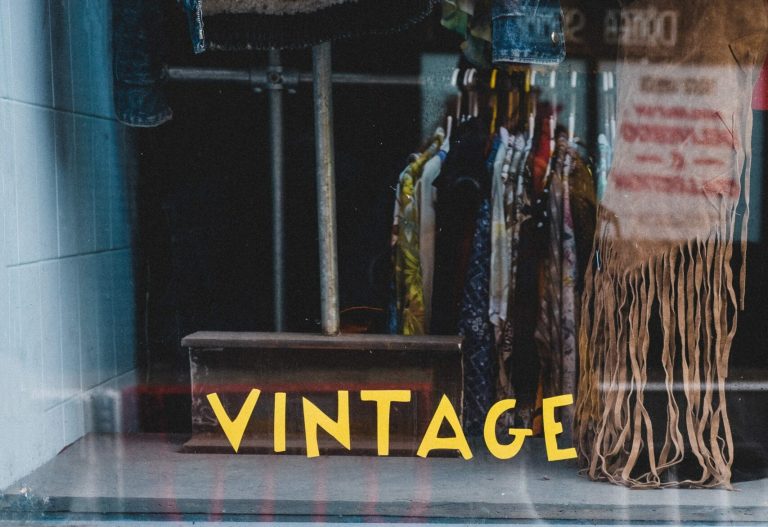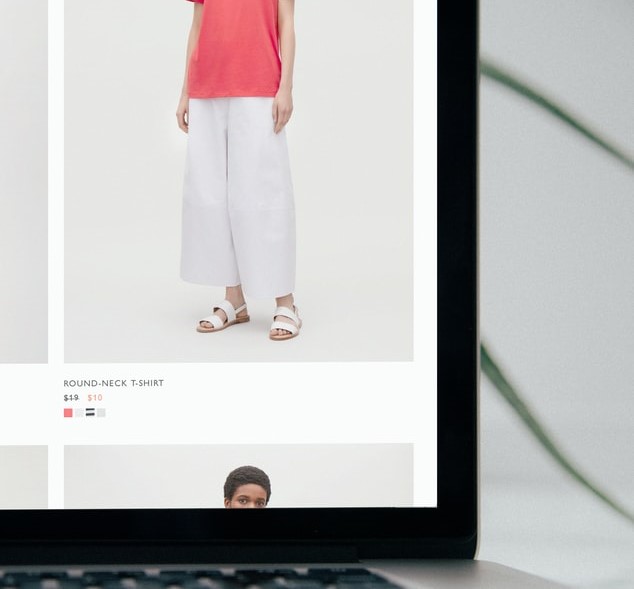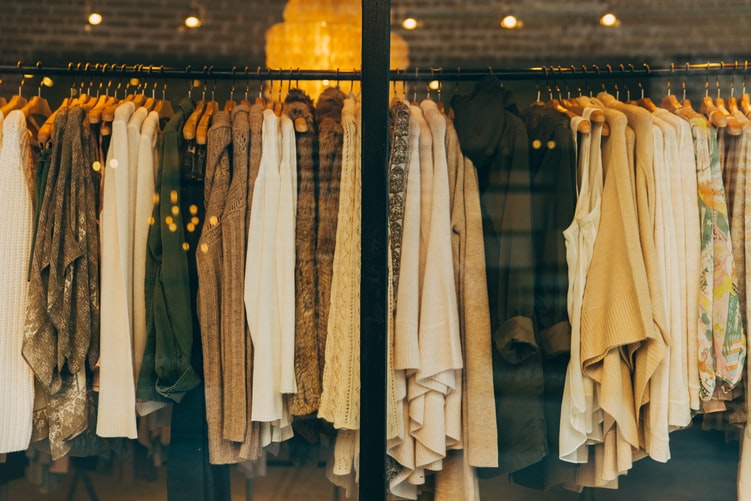How Did COVID-19 Affect The Fashion Industry?
Home » How Did COVID-19 Affect The Fashion Industry?
Table of Contents

As the pandemic brings the world to a slowdown, every industry is heavily affected. Everywhere, many businesses are suffering drastic economic losses and those surviving are scrambling to adapt to this abrupt global economic debacle.
The fashion industry is facing its own challenges as they struggle with mass store closures and strict factory production regulations. Factories are either no longer able to open or operate at maximum capacity as a result of COVID-19 causing a stalemate in returning to pre-pandemic apparel production.
In countries where Covid-19 lockdowns are lifted, retail shops are forced to close early, limit the number of shoppers within store premises and adhere to strict social distancing measures.
Countries with a high rate of COVID -19 cases are still subjected to lockdown regulations; which means that retail fashion outlets are obliged to close their physical stores as retail outlets are seen as non-essential. Even global apparel brands such as Zara were preparing to shut down 1,200 of their stores globally, shifting the focus to fashion e-commerce.

The fashion industry has taken a hit, with businesses losing heavy profit while others were forced to go out of business. Fashion brands all over the world hastily search for alternatives to keep business afloat as the pandemic puts cash flow and survival into peril. Employees were also forced into unemployment as businesses retrench and restructure.
How did COVID-19 affect the fashion industry?
In the midst of the pandemic, the fashion industry inexorably has its hands tied. There are many factors that leave brands in a vulnerable position, and for fashion businesses, below were major contributions:
1. As people are encouraged to stay home and travel in a limited capacity, physical stores are bound to lose foot traffic.
2. In such dreadful times, the demand for apparel has plummeted as consumers are more concerned about essentials over fashion. Besides, why would one dress to impress when an entire nation is subjected to stay-home regulations?
3. Large scale events such as fashion shows are either postponed, allowed to operate under strict regulations or simply cancelled, depending on the country’s COVID-19 situation.
Therefore, following strict COVID-19 measures, the fashion industry has to reevaluate its business strategy. There are ample considerations to ponder: How to drop launches, announce collections, handle backend affairs and customer services?
How are brands adapting to the pandemic?
To cope with the ramification of this global pandemic, the fashion industry has already come up with unique and innovative solutions. Brands know that they have to transform, adapt and overcome the unique problems brought about by this situation.
As physical operations suffer, businesses are shifting online as a substitution. Sales, launches, shows and functions are now conducted via online platforms resulting in social media becoming an important element for fashion businesses.
In terms of fashion education, technical and theoretical courses have shifted to e-learning platforms as well. There are a ton of online fashion courses where classroom learning isn’t required. This ensures minimal disruption to fashion students in their academic progress, and for fashion professionals, this pandemic has also brought about greater opportunities to enhance their skills further. There is certainly an abundance of opportunities and advantages to upskill with online fashion institutions.
Shifting physical stores to online platforms
Although the majority of brands are already online, they are shifting their focus to e-commerce, directing consumers to make online purchases. To encourage consumers to shop online, brands offer membership perks and discounts when customers sign up for newsletters, create online accounts or purchase for the first time.
Brands also invest in developing phone apps to facilitate easier transactions and utilise notifications to update customers on new collections and sale items.
Online shopping has proven to be incredibly effective for fashion businesses in a time where people are obliged to stay at home. Besides, brands can expand their presence all over the world, no longer limited to local audiences.
The convenience of having our packages sent to our doorstep with just a click has always been incredibly popular amongst consumers. There are no operating hours, customers do not have to travel down to shops and they can choose different types of delivery services that fulfil their requirements.
In fact, online shopping will definitely remain a necessary feature for fashion businesses even after the pandemic is over.
Utilising digital marketing to promote your fashion business

In this technological era, digital marketing has become a prominent aspect of our daily lives, dictating how the majority of people consume information. Therefore, it is essential for the fashion industry to jump onto the digital marketing bandwagon to promote their products and/or services.
Depending on the consumer’s demography, brands can choose from a variety of online marketing channels that best suit their audiences.
Search engines
Fashion brands can increase their presence on search engines so that they can be easily discovered, especially when potential customers search for their products and/or services. There are both paid and organic segments in the area of search engines that a fashion brand can consider. If your budget is restricted, one feasible approach would be to focus on the organic portion.
As the most popular social media channel with close to 3 billion users, Facebook is an essential app for every fashion business. The app is easy to use and it comes with different features that businesses can utilise to promote and sell their latest collections.
Instagram is extremely popular among fashion brands with its photo-sharing feature since images are crucially important for every fashion business.
With progressive app updates, Instagram has developed many components that are beneficial for businesses. Nowadays, businesses have plenty of tools to promote their brand by filling up essential information on their profile allowing them to engage with customers via InstaStories and Instagram Live, and utilise IGTV to showcase new apparels.
Engaging social media influencers
To further promote brand awareness, some businesses engage social media influencers to advertise and endorse their collections. In fact, there are a variety of influencers you can choose from that best represent your brand! With a huge follower base, fashion influencers across various social media platforms can help to reach your target audience.
Video marketing
You can stand out from your competitors by producing high-quality video content and utilising marketing techniques that will enhance your brand awareness. With a wide range of users on the internet from around the world, you can reach out to a global target audience with similar interest in your style of fashion!
Covid-19 business survival tips

Going e-commerce
Every fashion business looking to survive this pandemic follows an important rule:
Drive online sales! Regardless of whether there is a lockdown, driving consumers to your e-commerce website allows you to generate much income during this situation.
Managing your online store expenses
If you don’t have an e-commerce store beforehand, starting one now can be too much to handle especially for small fashion businesses. The expenses involved in creating your online store via a web developer could drastically reduce your financial reserves. Hence, you have to decide beforehand the many factors such as time required, costs involved, taxes and various other considerations. One cost saving solution would be to create your own website with platforms such as Wix, Shopify or Bigcommerce.
Make sure your team is able to handle the increased demand brought about by innovation. Ensuring accurate bookkeeping will enable you to plan additional expenses.
With the abundance of financial tools that are readily available, accounting processes can also be more efficient. Naturally, to build your digital presence, your team needs to beef up on its digital marketing efforts to first generate online traffic before you can foresee the possibility of online sales that is substantial.
In these tough economic conditions, consider leveraging the global logistics network to acquire your materials. Sourcing from low-cost suppliers can be a game-changer for sure. For those who are interested, check out our strategic sourcing and vendor management course for more information!
Conclusion
The pandemic has been especially detrimental to the fashion industry, leading to many store closures and some unfortunate businesses to shut down forever. Yet many remain indestructible, coming up with innovative solutions to be stronger than ever.
Going online has proven to be a great advantage for fashion businesses. With creativity and marketing tools, the fashion industry can overcome the impact of the pandemic.
As the fashion industry is facing financial disruption, it is essential that businesses enhance their cost-efficiency and value proposition.
Fashive is an online fashion school that focuses on quality fashion classes. Check out our range of lessons catered for fashion professionals, enthusiasts and students today.
Related Courses
Strategic Sourcing and Vendor Management
- 16 hours
- Advanced
- English
Fashion Design & Product Development
- 12 hours + 3 hrs for Assessment
- Intermediate
- English
Seam and Stitch 101
- 4-5 hours
- Beginner
- English



